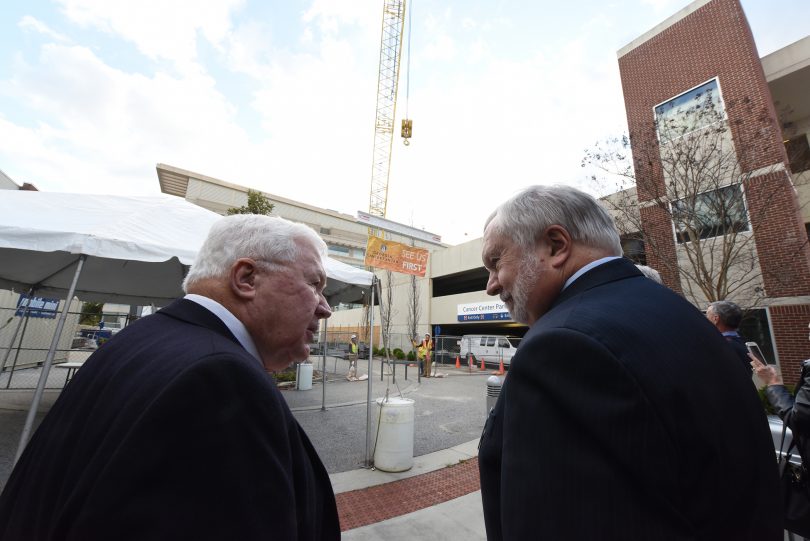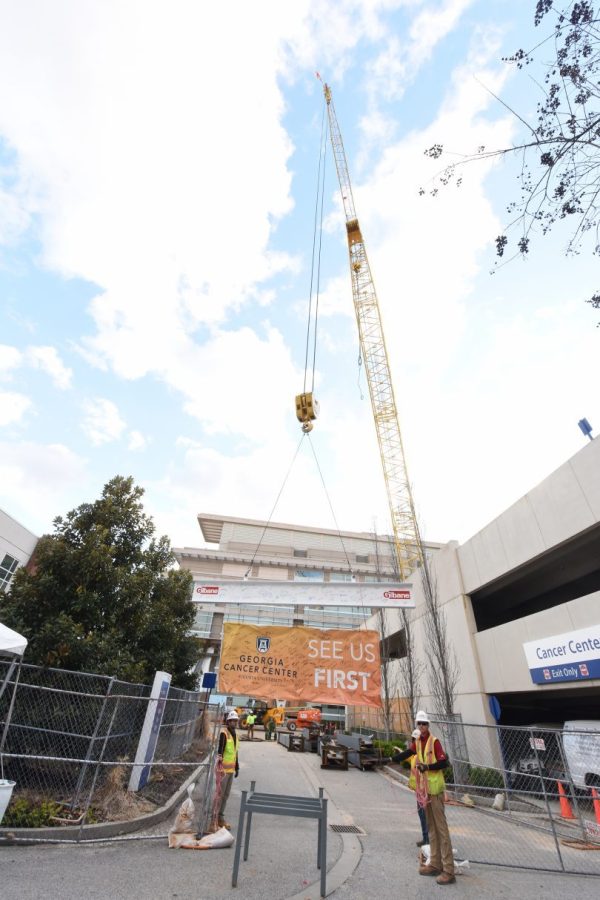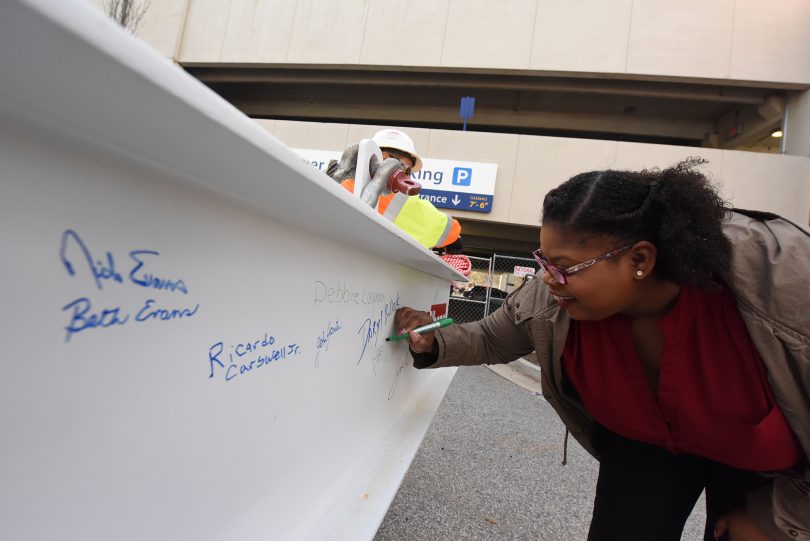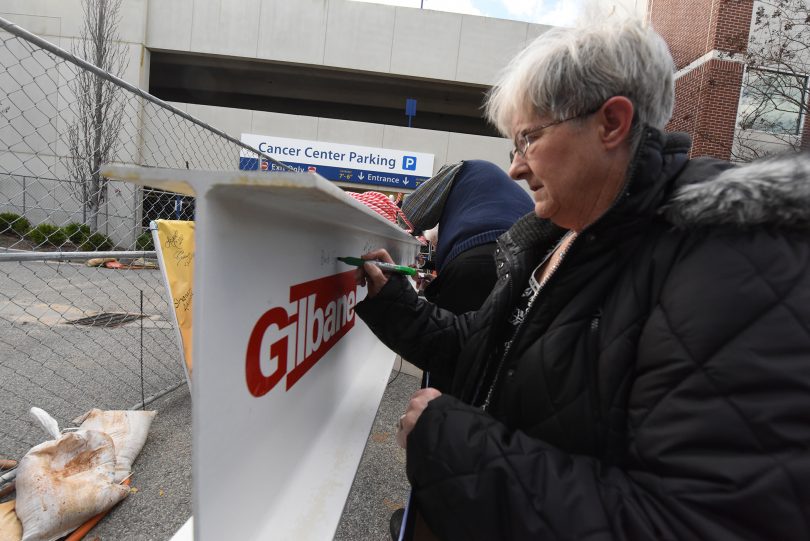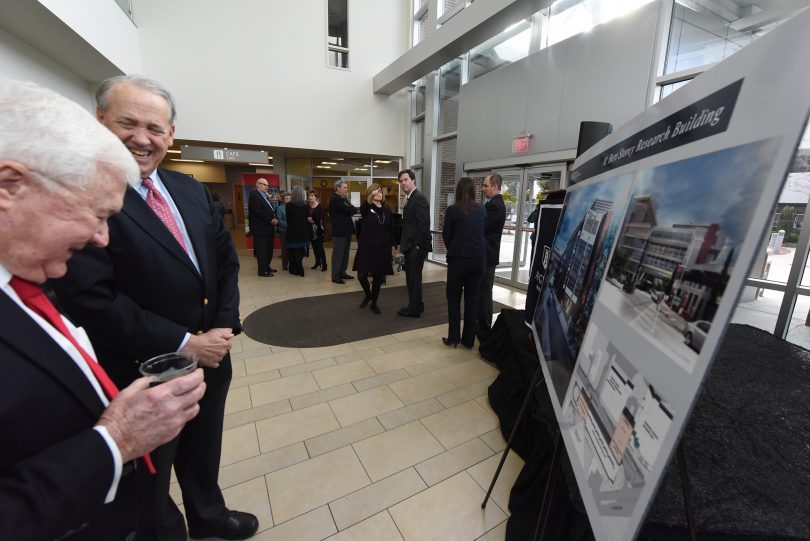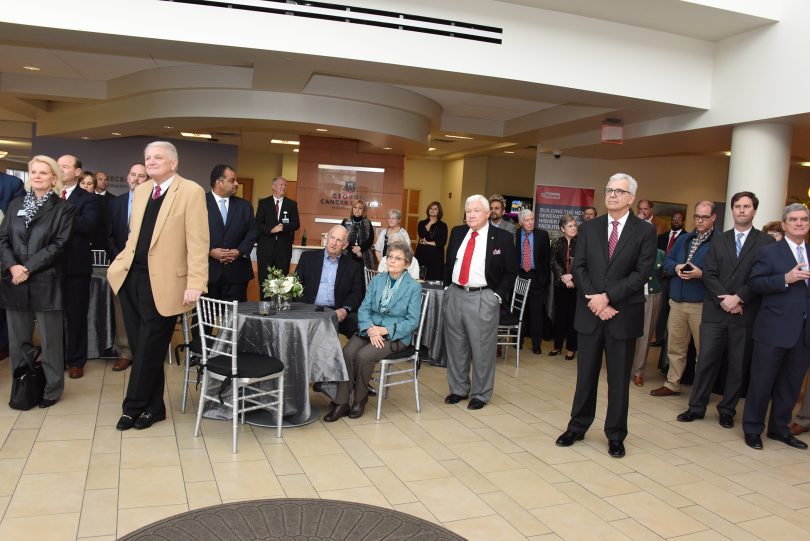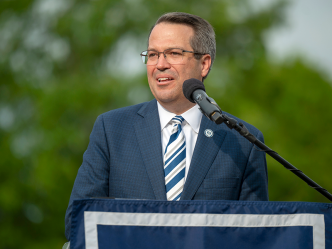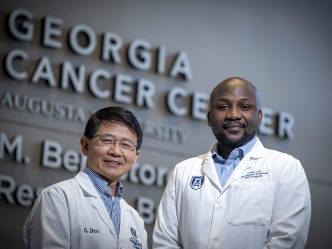Augusta University leaders and community members gathered Tuesday to sign a ceremonial steel beam, similar to those that will make up the five-story connector over Laney-Walker Boulevard, seamlessly uniting clinical and research missions at the Georgia Cancer Center.
The connector is just one phase of the $62.5 million expansion and renovation project that will transform the 170,000-square-foot cancer research building at the corner of Laney-Walker and R.A. Dent Boulevards into the Georgia Cancer Center M. Bert Storey Research Building. The expansion includes approximately 72,000 square feet of new construction and approximately 6,000 square feet of renovated space.
“We believe the beam and the connector that will follow are symbolic of the energy and synergy between our treatment of patients and families and our researchers’ relentless quest to find still better ways to detect and treat cancer earlier and evermore successfully,” said Dr. David C. Hess, interim dean of the Medical College of Georgia and interim executive vice president for Medical Affairs and Integration at Augusta University. “The five-story connector will quite literally join these current and future efforts for patients and function as a state-of-the-art, visible home for cancer prevention programs that benefit our community and state.”
The state of Georgia is providing $50 million in bond funding, and Augusta University secured the remaining $12.5 million. The building’s namesake is a longtime University supporter.
The project’s design will provide quality research space to promote multidisciplinary collaborations and translational research, which is essential to creating an environment that promotes innovation.
Housed within the connector will be a novel cancer deterrence and control program that promotes and fosters key community programs and events focusing on prevention, awareness and education. Construction is expected to be completed in early 2018.
The Georgia Cancer Center at Augusta University is a multidisciplinary academic cancer center whose mission is to reduce the burden of cancer in Georgia and across the globe through superior care, innovation and education. Its patient-centered approach includes first-in-the-nation treatment protocols, an experimental therapeutics program and specialized clinics for Phase I trials and immunotherapy.
 Augusta University
Augusta University
